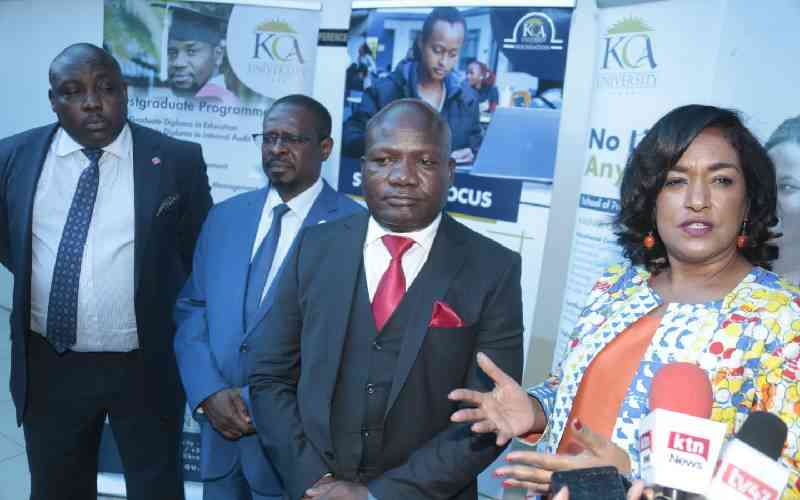×
The Standard e-Paper
Stay Informed, Even Offline

From left: HELB CEO Charles Ringera, KCA University VC Prof. Isaiah Wakindiki, Kakamega Governor Fernandes Barasa, and Nairobi Women Representative Esther Passaris. [Boniface Okendo, Standard]
Kakamega Governor Fernades Barasa has called on universities to match their academic programs with foreign institutions of higher learning to broaden the skillset of their graduates.







